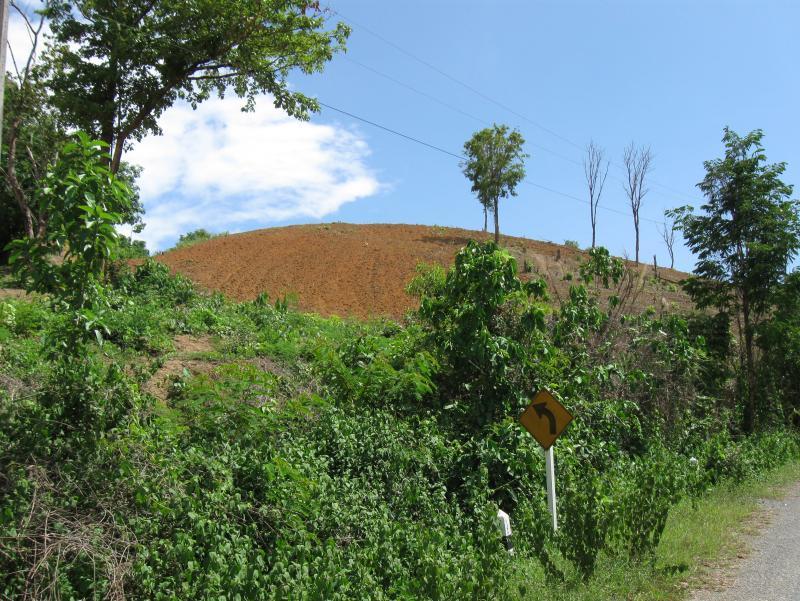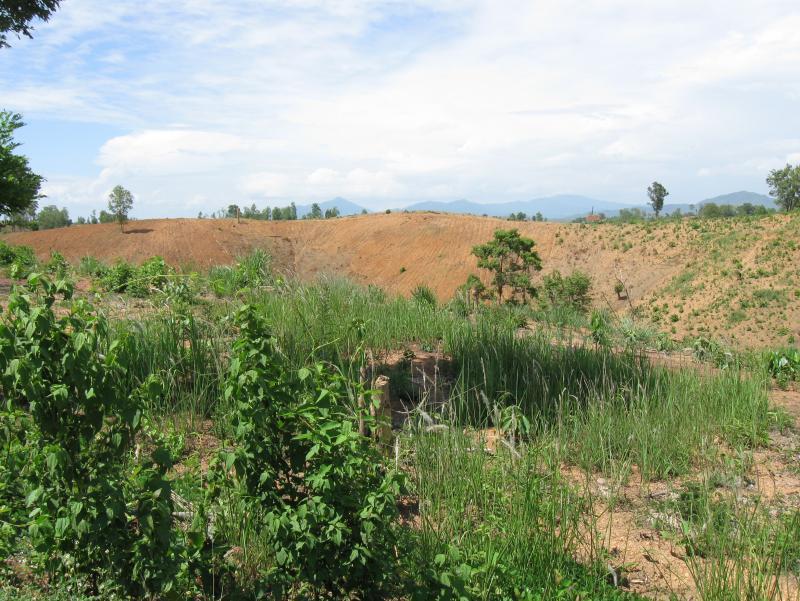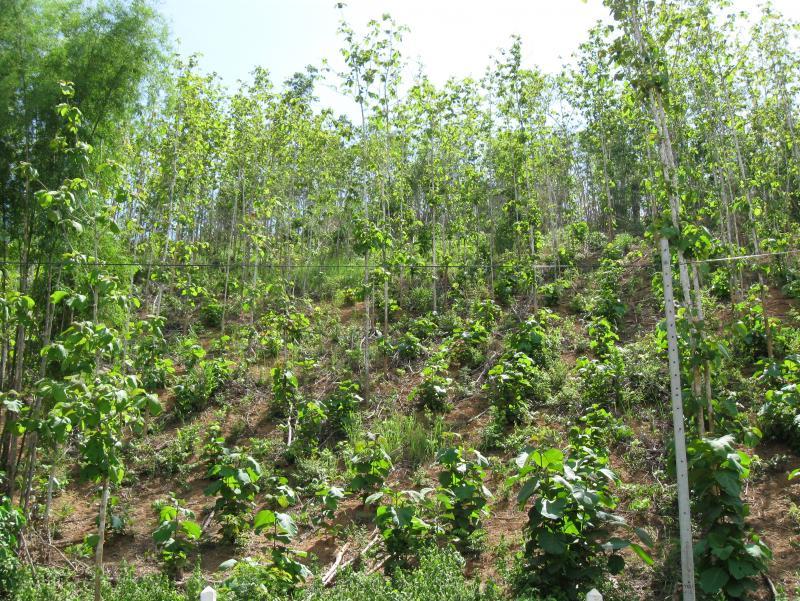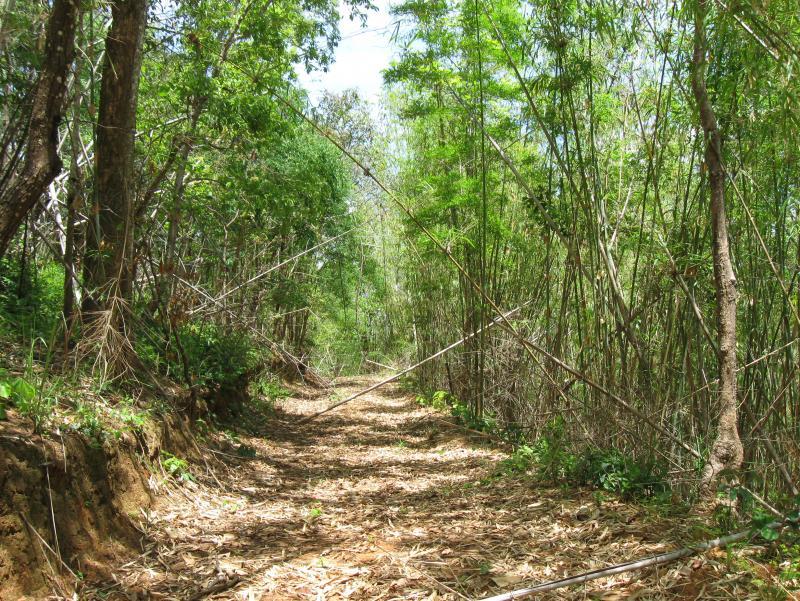-
Posts
468 -
Joined
-
Last visited
Content Type
Events
Forums
Downloads
Quizzes
Gallery
Blogs
Posts posted by DeepInTheForest
-
-
2 hours ago, spiderorchid said:
I live in Kabinburi and the rainfall for the last 2 weeks has been massive. I believe that Thailand urgently needs more dams and overflow dams which drain water away through canals. It is expected that massive monsoons will increase towards the end of every year and dry/drought conditions will increase from Jan to May,June. A practical dams policy can reduce the impact of flooding and aid farmers during the dry season. IMHO
Ah, the inevitable. A call for new dams.
You would think that the dams we have already built would have prevented flooding-- after all, that was a big selling point. Of course, the solution posited is to create more dams. Assumedly we will eventually get a leg up on mother nature as reservoir capacity increases to some undefined point.
But there is increasing evidence that dams not only may be ineffective in many cases in preventing flooding, but actually exacerbate the problem. They also have long-term costs that call into question their financial viability.
http://issues.org/24-1/workman/
One dynamic is that during flood times, dams must release water in a hurry to avoid being structurally compromised.
Downstream damage is often worse because dams create a false sense of security in terms of new construction on the floodplain.
A speculative study from Chile suggests the possibility that dam reservoirs create the conditions for increased numbers of rain events and thunderstorms due to evaporation.
http://www.bbc.com/news/science-environment-20663875
The lifetime of dams averages only 50-100 years, because of sediment buildup behind them (.5% to 1% per year). That sediment is denied to downstream estuaries, which leads to greater erosion. The absence of flow from upstream also increases salinization. Both are observed in the Mekong delta in Vietnam.
Dams in tropical areas have greater downsides in terms of global warming gas emissions-- which lead to greater rainfall, and greater flooding.
http://reliefweb.int/report/bangladesh/dams-accused-role-flooding-research-paper-dams-and-floods
There is also increasing recognition that flood events are part of the normal life cycle of biological systems that humans rely on. The fish who have adapted to flooding in the Tonle Sap are just one example in the SE Asia region.
We may be better served by adapting to the flood cycle-- allowing areas for overspill of the river's banks during flood times, avoiding construction in or elevating our buildings in the floodplain, devising water-borne transport for flood events, and so on.
https://charlesrangeleywilson.com/2015/12/19/why-dredging-makes-flooding-worse/
And the need for the elimination of carbon emissions has become more clear than ever.
-
2 minutes ago, ddavidovsky said:
Let's only draw reasonable comparisons. Tiny islands don't count. They are independent because they are tiny islands - they can pay their way because there's nothing much to pay, the don't have expansive hinterlands to maintain.
The US and Cuba etc don't compare - they were settled territories.
We're talking here about irredentism - local indigenous pockets on the edge of bigger nations that find themselves part of an alien culture. Such groups are found on the edge of pretty much any country. Point is that there are surely criteria for them to merit independence, and having a unique language is surely a big one. There are other things that would also help, such as having historical sites of cultural significance (such as Angkor or Ayutthaya) - I'm not aware of anything like that in the south.
Ok, this is my last post.
The arguments still seem weak. And I'm not advocating for independence for Pattani.
Irredentist? Unique language? Tell that to Eritrea, South Sudan, Bangladesh, or even the Scots.
... "there are surely criteria for them to merit independence..." And who decides these criteria? Sounds paternalistic, even colonialist in tone.
... "historical sites of cultural significance..." -- Who decides what is culturally significant?
And so on. If we talked to the residents of the Deep South, I don't think they are thinking along terms dictated by our 'common sense'.
I'm done. All the best.
-
On 9/12/2016 at 0:37 PM, ddavidovsky said:
Statehood is like species differentiation. It takes an aeon of nurturing a distinct heritage. The place is just not different enough. If they had their own language they would have more of a case - I'm not sure having their own dialect is enough.
As to the economics of it, it takes more than a bit of agriculture. Tourism potential is only moderate and it's a smallish area - limited room for development but still would require sufficient GDP to keep it running.
What would be it's new capital, Yala?
I can't see it working and I doubt that was ever their real goal, though the idea of independence has crept up recently in order to sustain the struggle. Thailand can solve this problem by throwing money down there and giving them enough autonomy. No other solution is needed - and there really is no other solution.
The first 3 paras employ muddled logic. Since when has a unique language been a sine qua non for statehood? If so, we should anticipate the US returning to the fold of the UK soon. And Cuba to Spain. And should Singapore, being too small, declare itself a failure and reattach itself to Malaysia? And Taiwan to China...? Those Caribbean principalities and Pacific Island states would have to throw in the towel, too.
I agree that Pattani probably does not desire statehood at this time, but these arguments are dubious.
-
On 9/12/2016 at 0:08 PM, BKKBrit said:
Incredible amount of uninformed and frankly ignorant comments in this thread. If you guys live here...shame on you. For those outside the country and blame Islam for the price of bread and your property value dropping...do some research. It's seriously frightening how many don't even know the history of the country they call home and profess to be experts. Jeesh.
What, and give up our emotional, foundationless, jingoistic ranting? What kind of over-intellected killjoy are you? This site will go t--s up in a month. And then where will we all be, Mr. Sensible? Posting on BP with its eensy-weensy little comment boxes? No, thank you, if I do daresay so.
-
6 hours ago, canopus1969 said:
Islam, the religion of peace

Good grief. At least get your facts in line before you promote your prejudice. And the same to those who liked this.
-
Enjoyed reading this 'discussion'.
When a person is adamant in his opinions on a given subject despite whatever evidence is presented, one is usually safe in assuming that he has skin in the game.
"It is difficult to get a man to understand something, when his salary depends on his not understanding it." -UptonSinclair
-
38 minutes ago, AlexRich said:
Well, they know they are looking at the face of a confessed rapist, who sexually assaulted a girl with serious injuries, before leaving her unable to move in a snake infested jungle.
God forbid that anyone would be so ignorant to point out the the criminal looks like the guy in the middle of that famous Charles Darwin Origin of the Species poster. We already know his character, he's a scumbag. As for intelligence, I think we can draw our own conclusions ... and you can invite him to your next Mensa meeting if you so wish.
I stand by my original comment. Rapists come in all manner of descriptions. So do intelligent people. Appearance as an indicator of either is meaningless, and those who bloviate about someone's looks being an indication of his or her character or intelligence are marking themselves as shallow thinkers at best.
I guess Stephen Hawking wouldn't stand a chance with you in the same room, would he?
-
Posters who make comments that evaluate a person's character or intelligence based on appearance are revealing their own stupidity.
-
Yes, it will be better and more stable to have the disenfranchised workers securely under the thumb of international business. Higher profits, here we come!! And that FDI will insure that the country never develops its own independent industrial sector, which is a big plus right there.
What's not to like?
-
"Helping gain access to capital... "
Okay, we give them a band-aid. Someday we're gonna have to confront the fundamental failures of the system, aren't we?
-
Most Chinese tourists I see, in many different countries, are very well-behaved. Some uppity hiso decided to post the clip without any context. Clearly he/she doesn't work in hospitality because without the Chinese market ( notwithstanding the comments in another post above about the return) there would be mass unemployment in the sector. They might not be high margin visitors but they keep a lot of businesses afloat.
I respect your opinion but does that excuse all their weird behavior?
The problem with the complaining posts in this thread isn't that there is not some degree of truth to the descriptions of bad behavior. The problem is that it is tied to the Chinese as if it is somehow inextricably and uniquely linked to their identity as Chinese. That is not objectively true, as anyone who has observed other travellers behaving badly can attest to.
I have met many polite and thoughtful Chinese around the world. Boorish behavior may be justly condemned, but let's not condemn an entire very diverse nation of 1.3 billion based on the behavior of some. And let's look in our own backyard-- many of us hail from countries whose citizens' behavior and treatment of other nationalities has at times left much to be desired.
As noted above, the country is coming out of a relatively long period of cultural isolation. Give them time, and exposure to other people and places, and we hopefully won't be having this conversation in a few decades.
-
Kudos on a remarkable achievement! Thai-bashers, take note. Now if they could just design a machine to rescue the EU and the world economy...
-
Readers may want to consider the narrative here. In our globalized world, being 'competive' is all very well, but when there is excess production capacity, as happens periodically in our economic system, we all suffer.
That's what has happened. Currently China is busy undercutting prices of steel all over the world to rid themselves of excess inventory. There will be similar effects in other industries.
In an attempt to maintain profits in a period of declining consumption, corporations will slash wages, and capital will circle the world looking for the cheapest labor. Some will do very well in this system, and many will suffer greatly in ways we cannot imagine. One's 'competitive ranking' may be of little benefit.
It will be an interesting ride down the escalator for many of us. What to do... ? Maybe hang on to our hats... and adapt as best we can... while trying to work out a more just and equitable future for our grandkids... if that is possible.
The rankings of 'competitiveness' I tend to take with a large grain of salt, while trying to be mindful of who exactly is concocting them, and for what purpose.
-
Militaries have at their base the use of violence to address problems.
This murder is reflective of that, though the military people would probably say these were just a few 'bad apples', or words to that effect.
-
The dams built on Lao territory play an important role too in the 'perturbation' of the Mekong's natural flow, but the Lao authorities are not the main wrongdoers, they just arrange to get some money (not a lot) from those main wrongdoers, which are for a large part... Thai companies, like some (state) electricity generating company, several engineering companies, ...and mega construction companies. Why is there no finger pointed at these? Because they are Thai, ...powerfull and wealthy, maybe?
True, we, all, consume too much electricity, caught in the nets of consumerism, but are there no other means to produce electricity in a sustainable way? There surely are, but a little bit less 'cost effective', so, here (as in many other countries) it's the greed of consortiums wanting to make as much profit as possible, not caring one setang for the consequences of their acts.
The BIG question those people are not the slightest busy with is: when we will have destroyed nature, what will we put instead to make money with?
...And there will be electricity shortages, rate increases, etc. ...because there will not be enough water left in the dams, mind you, them not even thinking about farmers, fishermen, general public, ...or nature, as if those businessmen would care a bit, ...but simply to keep their sacred cashcows of hydro-electric installations running!
Even during el nino months, the wind is blowing, the sun is shining, though... The crazy world we're living in, money, money, money, ...more money!
Excellent post. The dams in Lao PDR are bought and paid for by EGAT, which will take almost all of the electricity generated.
The culprit here is the idea that the (Thai) economy must grow, and that electricity is indispensable to growing the economy.
And you are right to finger the engineering and construction companies, who are in bed with the politicians. It is a thoroughly corrupt world we live in.
-
[edited]
.... I agree with scratchy that the cutting down of large rainforest areas may have more of an affect on a bit of weather in their areas ,but that would be in Indonesia and not Thailand, unless the forests in Northern Thailand are also recently gone.
Good luck to the areas that are affected by this present drought.
Geezer
The entry in wikipedia on "Thailand deforestation" says that between 1945 and 1975 forest cover in the country declined 44 percent-- from 61 percent to 34 percent of the land area.
From 1976 to 1987, forest cover declined another 28%. And from 1987 until now? I'll let you extrapolate.
There is very little of the forest left in Thailand. You can travel provinces like Nan and see that the old growth is gone, replaced by stands of bamboo and eucalyptus plantations, if not bare land, that do not provide nearly the benefit of a healthy forest.
Yes, tree cover affects the amount of rainfall as well as groundwater retention. (The Amazon region is a case in point. Sao Paolo is in danger of losing its water supply for similar reasons.)
-
True, but the Mekong only skirts Thailand's border for around 400km. The Chao Phraya watershed, which is the largest watershed in Thailand, covers approximately 35% of the nation's interior, and, as none of its tributaries extend beyond Thailand's borders, it is not affected by the flows of the Mekong.
But the Chao Phraya is affected by drought regardless, as mentioned in the article.
The major dams mentioned in the article are located on tributaries of the Chao Phraya-- the Bhumibol dam is on the Ping River, and the Sirikit is on the Nan River.
And we're running out of water.
Not sure if there's a silver lining here.
Having said that, Thailand may see periods of extremely heavy rains as well, due to increased ocean temperatures. That will bring a different problem-- flooding. As we have seen in 2011, the dams do not eliminate the possibility of flooding, and in fact may exacerbate it. That may sound counterintuitive, but when dams approach capacity, and rains keep coming, water must be released in large amounts to prevent dam destabilization and flooding in the area proximal to the dam.
-
"When the durian jam was sliced open, it was discovered that the jam inside was outdated which was different from the Mon Thong durian jam which was put on display."
How do you determine that the jam is outdated by slicing it open?
If it were simply a color difference, it should be obvious through the clear plastic. Not clear, as usual, what is meant here.
-
The latest global warming news is dire. The warming is occurring even more quickly than scientists projected. That suggests disappearing glaciers in the Himalayas that feed the Mekong.
This year may be simply a taste of what is to come.
We can hope that the rains return at their usual time. If not, one has to wonder, what then?
-
the website has been taken down now but how many wayback machines are still holding the info. also the info was posted to a google spy ware map. they arent going to deleted that any time soon.
my interest, i am currently in the south in an area that has been target by terrorist bombs not too long ago.
the good news i wasnt on the map or data base, more a map of long termers than casual drifters like me. possibly only workers as i didnt see any with retired as occupation as by a casual perusal. many Philippians among them.
ps was all written in thai, which i can read.
Good to know the Philippians are still around. Haven't heard much from them lately.
-
-
A serious issue globally, notwithstanding the barmy, callous, and downright imbecilic comments among those posted here.
Land grabs by the powerful devastate not only local economies, but social stability and environmental health. They also exacerbate inequalities. As pointed out by Jimi007 and steelepulse, the moken have lived there for millennia-- it's their land, and the vast majority of it has already been confiscated, i.e., stolen. Arguments claiming they have no "legal rights" to the land are risible. Indigenous people never have "legal rights"-- their historic legacy counts for nothing in our neoliberal economic regime. The same struggle is being played out in India's Orissa province, where the UK's Vedanta Resources corporation is stealing land for a toxic waste dump,
http://www.globalpost.com/dispatches/globalpost-blogs/india/india-land-grab-orissa
in Australia,
http://johnpilger.com/articles/under-cover-of-racist-myth-a-new-land-grab-in-australia,
http://channel.nationalgeographic.com/videos/australian-land-grab/
and in the US state of Arizona's Oak Flat,
among many, many other instances around the globe. Thankfully, the Thai army stood down during this encounter. May cooler heads continue to prevail. One suspects that local commanders were unwilling to execute orders from higher up, although it is impossible to know what actually transpired here. To lose indigenous cultures is to lose part of our human patrimony. It is not wise. Nor, in the long term, is our present course sustainable.
-
It is impossible for me not to connect the behavior of the Thai government with that of China, who it is cozying up to more and more. With the extradition of numerous 'wanted persons' back to China-- who often are fleeing for reasons related to human rights-- Thailand seems to be adopting the same tactics as its big northern cousin.
It would seem that external pressure is needed, since domestic pressure has been effectively neutered in both countries. Neither country is immune to the court of public opinion, and its effects on trade, the all-consuming mandate of today's world. Let's hope we will respond to the call of conscience, and raise our own voices when and where we can.
http://www.theguardian.com/world/2015/dec/11/china-gag-free-speech-champion-pu-zhiqiang
-
"Our company did not have any intention to convey discriminatory or racist messages," the statement said.
Of course you did. The sole appeal of your product lies in racist tropes.
"What we intended to convey was that self-improvement in terms of personality, appearance, skills, and professionality is crucial."Self-improvement as in skin color. Uh-huh.Can we get past the mindset that these companies deliberately encourage, in order to get a market for their products?Stay tuned... the arc of history is long. I would love to see these companies go belly up.








Three Udon Thani men arrested for growing marijuana
in Isaan
Posted
I never heard of it either, but-- that's why we have the internet.
https://duckduckgo.com/?q=marijuana+and+diabetes&t=ffab&ia=web